Unified position on Draft State Budget 2026 formed by AAATC member communities
The interregional forum ‘Draft State Budget-2026: Coordinated Positions and Shared Vision’ took place on 25 September in the Novoukrainka urban community in the Kirovohrad region, bringing together representatives of state authorities and communities.
The event brought together representatives of the Ministry of Finance of Ukraine, the Ministry for Development of Communities and Territories of Ukraine, the Kirovohrad Regional Military Administration, the Regional Council, Members of Parliament, experts and representatives of communities in the region. Members of the Board and heads of regional branches of the All-Ukrainian Association of Amalgamated Territorial Communities also participated.
The forum was organised by the All-Ukrainian Association of Local Governments ‘Association of Amalgamated Territorial Communities’ and the Swedish-Ukrainian POLARIS Programme ‘Support for Multilevel Governance in Ukraine’.
The event served as a platform for dialogue between state authorities, community representatives and international partners, emphasising the importance of consolidating efforts when preparing the country’s main financial document.
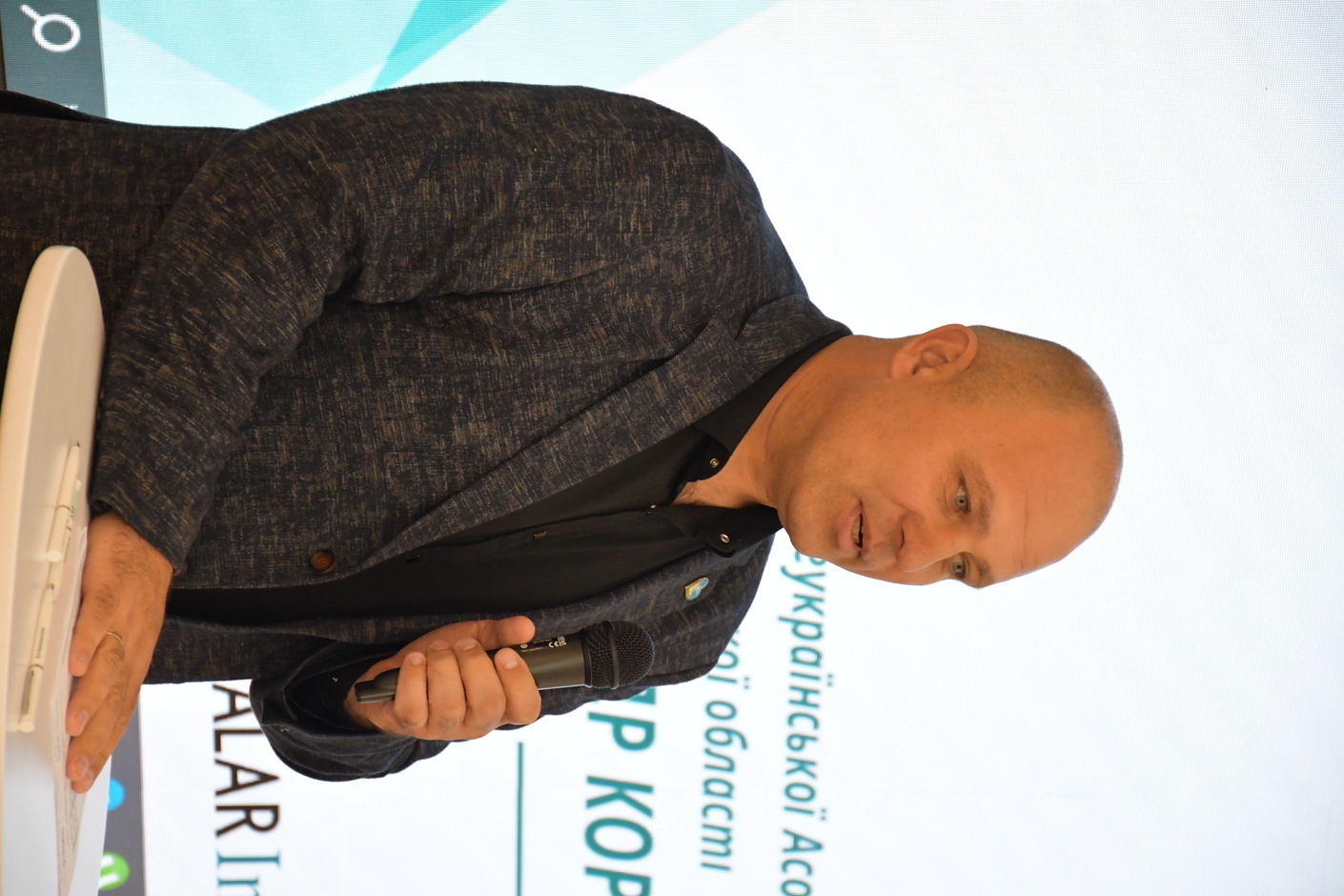
In his opening remarks, Oleksandr Korinnyi, head of the All-Ukrainian Association of Amalgamated Territorial Communities, set out the key challenges that communities are facing:
‘We are preparing the 2026 budget under wartime conditions. Nobody has taught us how to manage communities in such circumstances. However, we must ensure that we provide education, medical care and support for the military and internally displaced persons (IDPs). Our task is to establish a unified position of local self-government and communicate it to the Parliament and the Government.’
Key topics of discussion
The participants of the forum focused on the most important aspects of forming the state budget for the next year. The discussion covered the following issues in particular:
- financial resources of local budgets in the draft State Budget of Ukraine for 2026 (No. 14000);
- risks and problems that communities face;
- mechanisms for supporting territories affected by the war;
- preserving 64 per cent of PIT as the basic source of local budget revenues.
Positions of stakeholders in the budget process
Ukrainian MP Vitalii Bezgin praised the Ministry of Finance of Ukraine for its professionalism in difficult conditions under martial law. However, he stressed that a number of issues need to be reviewed in the interests of communities. In particular, he focused on the following:
- the vision of 64 per cent of PIT being directed to local government budgets;
- the importance of protecting small and medium-sized communities that are unable to participate fully in international programmes due to a lack of financial resources;
- the significance of increasing the State Regional Development Fund as a key instrument for regional development.
‘Until the powers of the different levels of authority are delineated at the legislative level, 64 per cent of PIT is untouchable. Replacing this 4 per cent with a subsidy to cover the difference in tariffs is incorrect,’ emphasised Vitalii Bezgin.
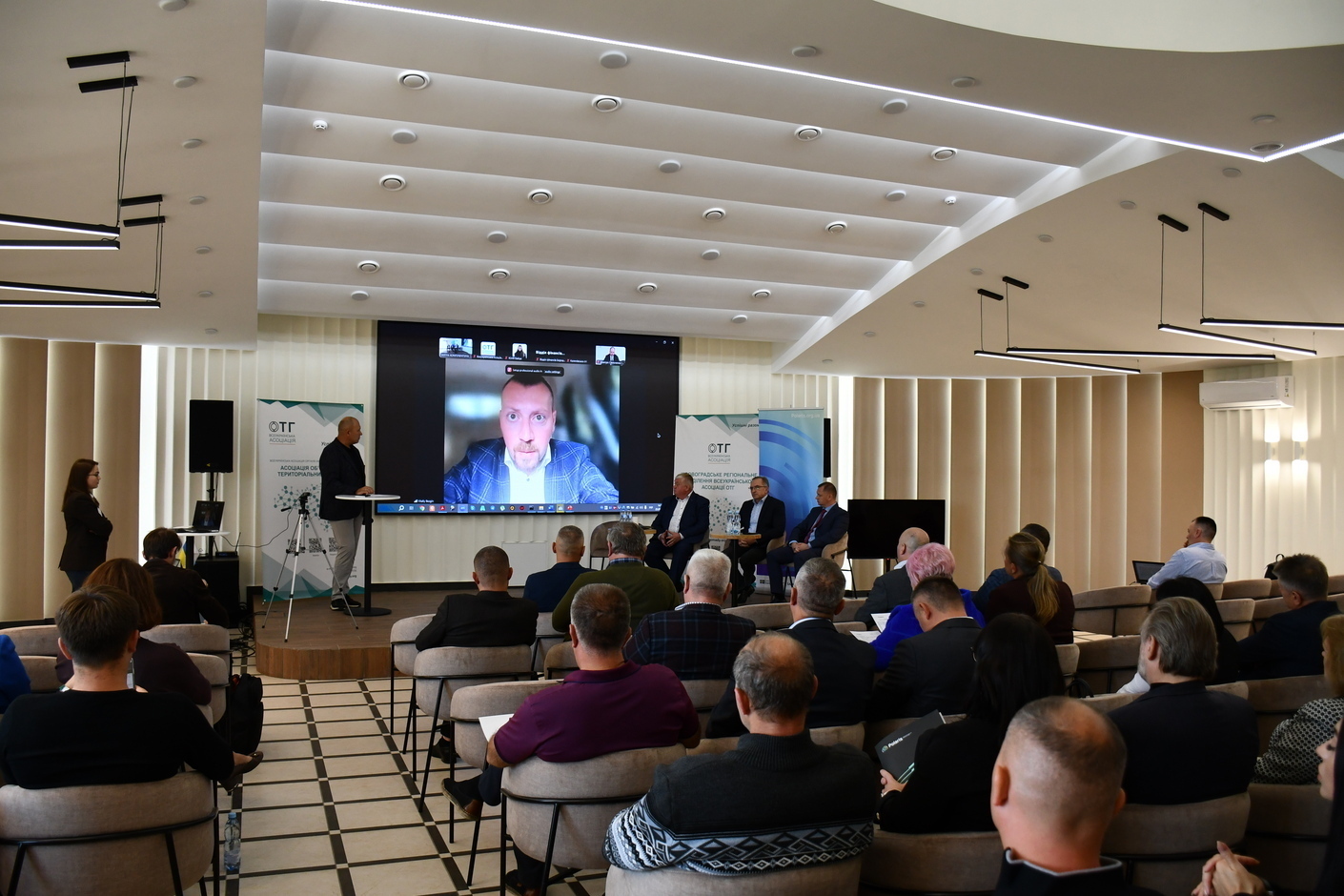
The MP also noted that the Parliament will traditionally defend the interests of local self-government where the Government’s decisions appear imbalanced. He expressed hope that key issues, particularly the preservation of 64 per cent of PIT, would be upheld and protected during the finalisation of the Draft Law.
The draft State Budget for 2026 provides for a UAH 15.2 billion subsidy from the state budget to local budgets, to compensate for the difference in tariffs for the production, transportation and supply of heat energy, centralised heating services, hot water supply, centralised water supply and sanitation services, and to support enterprises providing such services.
Oleksandr Korinnyi noted that only a small proportion of communities will receive assistance. ‘It appears that the subsidy will compensate for 4 per cent of PIT and will be transferred from the state budget to local budgets. At the same time, the AAATC notes that approximately 130 communities will receive this subsidy. Therefore, the proposed alternative is unacceptable to us. In this case, only 7 per cent of communities will receive assistance, rather than all of them without exception.’
The draft State Budget for 2026 forecasts revenues of UAH 2.9 trillion and expenditures of UAH 4.8 trillion. Of this, UAH 2.8 trillion is planned for allocation to the security and defence sector.
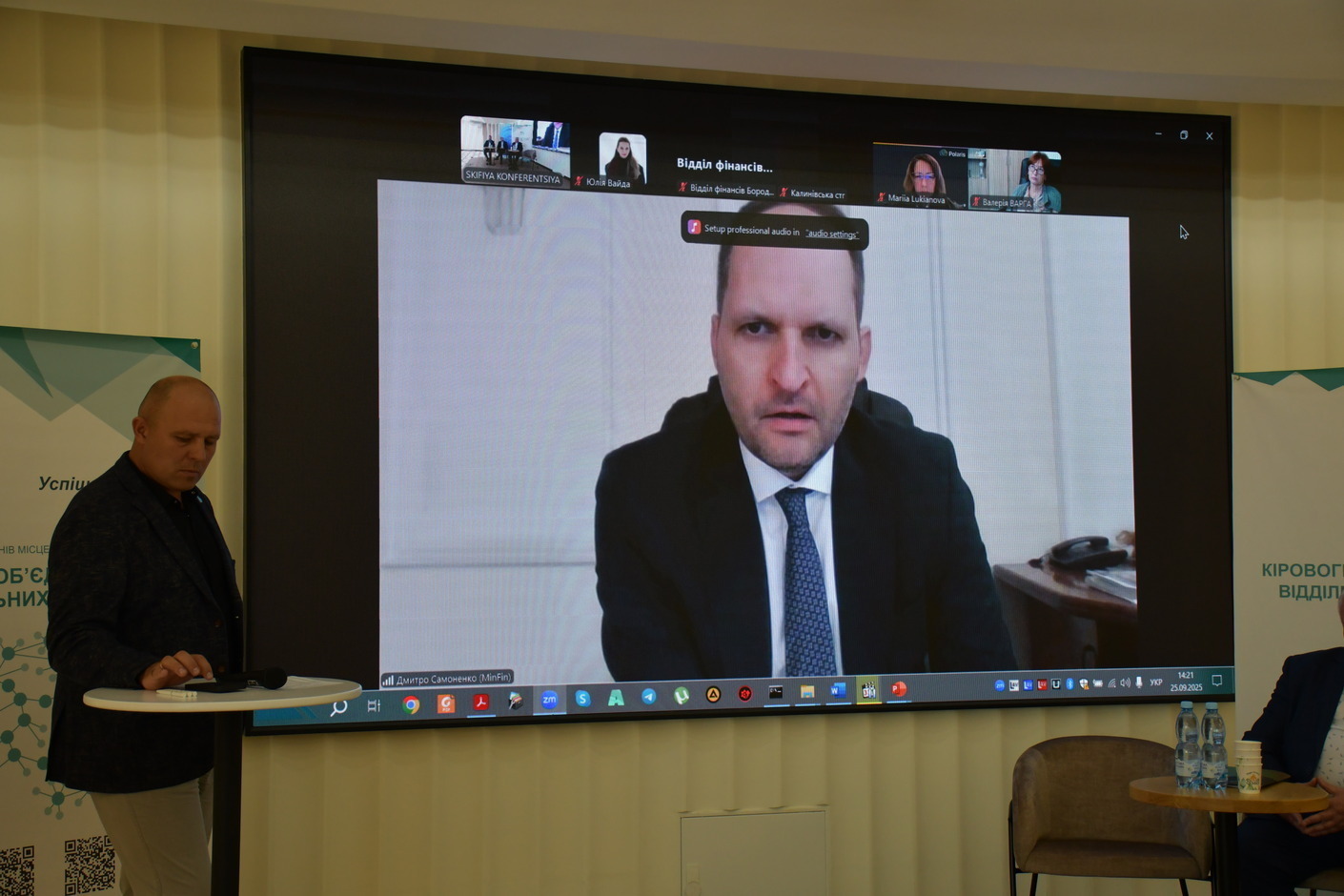
In his speech, Dmytro Samonenko, Deputy Minister of Finance of Ukraine, highlighted the complexity of drafting a budget during wartime and the priorities for frontline communities:
‘When we talk about the state budget, it is worth remembering that this is a matter of simple mathematics. These figures illustrate the challenging circumstances in which we are developing our financial policy. As for the 4 per cent PIT, that equates to UAH 15 billion. It is important to understand exactly how these funds will be used. In wartime, we pay special attention to frontline communities, which are now true outposts. It can be assumed that an additional subsidy of an extra 5 per cent PIT is provided for these communities, but for some reason no one is talking about it.’
Based on the facts presented, the community representatives had many questions for the Deputy Minister of Finance. Dmytro Samonenko commented on the position of the Ministry of Finance on Article 42 of Draft Law No. 14000, which states that any remaining funds from the local budgets of communities whose territories are currently occupied by the Russian Federation should be returned to the state budget. This issue in particular caused concern among the temporarily occupied communities, who were represented at the forum by Ihor Hnatusha, head of the Zaporizhzhia regional branch of the AAATC and head of the Komysh-Zoria community.
The heads of other AAATC regional branches also asked questions. Andrii Kolomiitsev, head of the Kirovohrad regional branch of the AAATC and head of the Pryiutivka community, asked the representatives of the Ministry of Finance whether they plan to reform the personal income tax system in line with European practices and within the framework of European integration. Maryna Arkhirii, head of the Odesa regional branch and the Krasnosilka community, drew the attention of the Deputy Minister of Finance to the fact that, while the draft State Budget provides for UAH 12.9 billion for state roads, no resources are planned for the repair of local roads.
Continuing the discussion, Oleksii Riabykin, Deputy Minister for Development of Communities and Territories of Ukraine, emphasised: ‘I think we should stop discussing the 60+4 per cent PIT. Instead, we should focus on how to ‘anchor’ the PIT in the community where a person lives, receives services and wants to enjoy a comfortable and pleasant environment. Therefore, I think we need to work in this direction; then there will be less room for such manipulations.’
He also emphasised that communities should have a tool for administering local taxes and fees. ‘However, before delegating such powers, communities must take inventory of their land plots and real estate. This will increase revenues to local budgets. According to our estimates, communities are losing approximately UAH 30 billion,’ said Oleksii Riabykin.
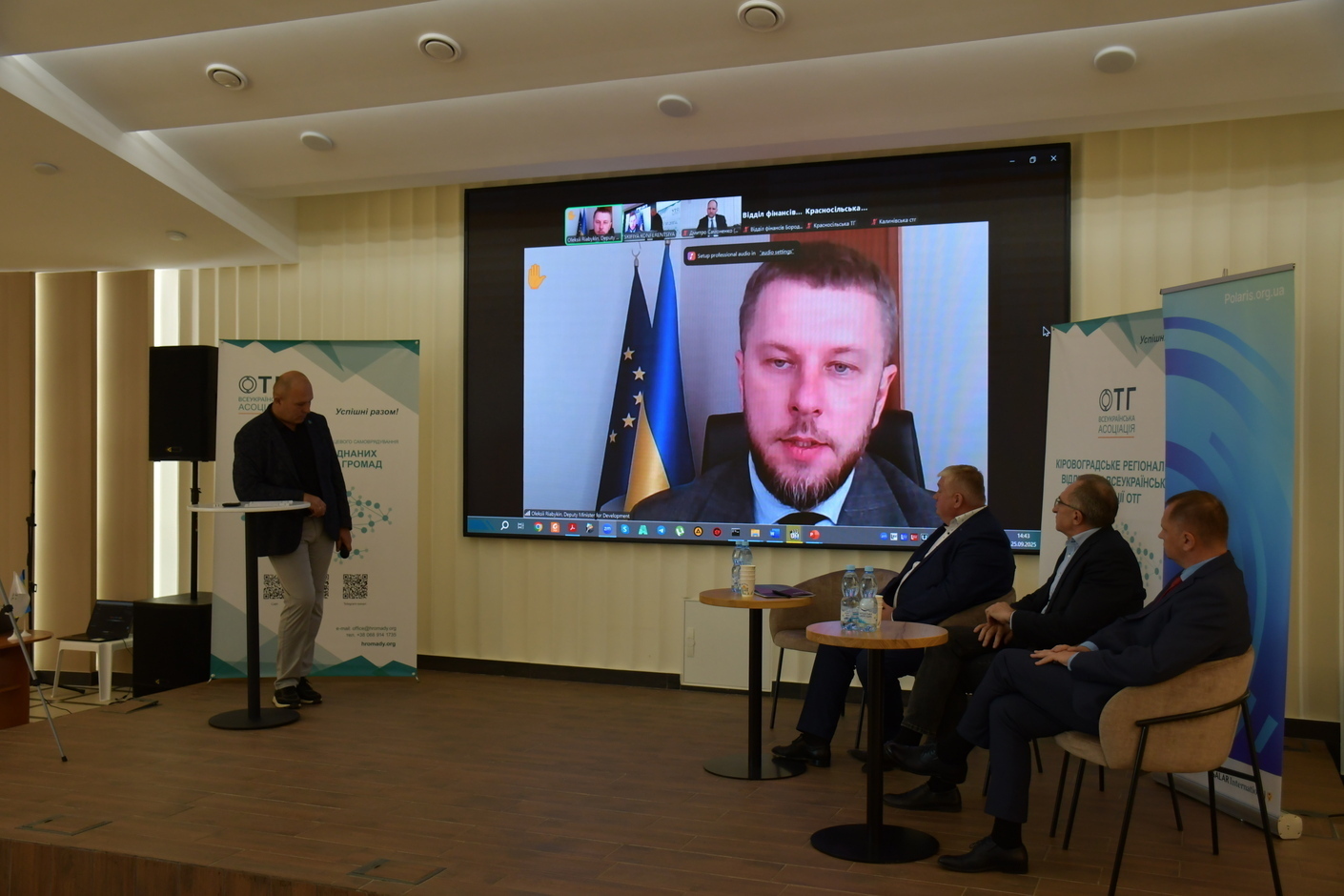
The forum participants also considered the topic of territorial development in a broader context. Thus, Serhii Sheremet, Deputy Head of the Kirovohrad Regional Military Administration, emphasised that security and defence issues remain a priority for the region. He stressed that special attention is paid to supporting military personnel, providing them with the necessary supplies, and assisting the families of fallen defenders. According to him, it is the common duty of communities to keep the rear strong so that the Armed Forces of Ukraine can confidently carry out their tasks on the front lines.
Yurii Drozd, Head of the Kirovohrad Regional Council, added that the regional budget has also lost ‘military’ personal income tax.
‘Today, we must clearly understand the priorities of the state and the budget for next year – security and defence, because this is important. Yes, we must also support social protection, education, healthcare, veterans’ policy and business,’ emphasised Yurii Drozd in his speech. ‘As of now, we see different opinions on Draft Law No. 14000. I am convinced that together we will develop a unified position, which we will submit to the central authorities for the finalisation of the draft State Budget. As representatives of local governments, we must undoubtedly defend the real needs of our regions and each community,’ he stressed.
Finally, Andrii Kolomiitsev, head of the Kirovohrad regional branch of the AAATC and head of the Pryiutivka community in the Kirovohrad region, congratulated all the forum participants and wished them fruitful cooperation.
Analysis of key indicators of local budget financial resources in accordance with Draft Law No. 14000
The first panel of the forum was moderated by Tetiana Arseniuk, Deputy Executive Director of the All-Ukrainian Association of Amalgamated Territorial Communities. The panel discussion focused on the key indicators for local budgets set out in the Draft Law ‘On the State Budget of Ukraine for 2026’, registered on the official parliamentary portal No. 14000.
Oleksandr Koren, Director of the Department of Interbudgetary Relations and Local Budgets at the Ministry of Finance of Ukraine, outlined approaches to horizontal equalisation. He noted that the most relevant system in terms of population size today is the Register of Territorial Communities, which is hosted on the State Migration Service platform. Therefore, the Ministry of Finance used this data when calculating the budget. ‘Unfortunately, the war has negative consequences for both the state and local budgets. We believe that additional subsidies are also a resource that can be used to equalise the imbalances that arise in communities in the process of implementing the budget.’
Mykola Rubchak, Director of the Multilevel Governance Department at the Ministry for Development of Communities and Territories of Ukraine, emphasised that today communities, together with security and defence forces, are demonstrating resilience and proving their importance to the country. He noted that the Ministry supports the proposal to strengthen the financial capacity of local self-government and welcomes the allocation of funds for this purpose in the budget. ‘We recognise that the sums proposed in the draft State Budget for 2026 do not align with the expectations of communities. Therefore, we believe that an important step would be to grant communities the powers to administer their own taxes and fees, as they are the ones who can ensure greater efficiency and quality of management.’
Tetiana Arseniuk thanked the representative of the key department of the Ministry for Development, with which the All-Ukrainian Association of Amalgamated Territorial Communities closely cooperates.
She said that a social media campaign called ‘ДІЯ_щоб_ДІЯТИ’ (ACT_to_ACT) had recently been launched with the aim of drawing the attention of government officials and representatives of central executive bodies to the issue of local tax payments. She emphasised the importance of digitising tax payments and making them through the ‘Diya’ application.
‘We have already met with representatives of the Ministry of Digital Transformation. In addition, our proposal to include this task in the State Regional Development Strategy was supported. We would like to thank the Ministry for Development for their understanding, as this issue is important for communities.’
Lesia Didenko, Director of the Department for the Implementation of Priority Regional Development and Critical Infrastructure Projects at the Ministry for Development of Communities and Territories of Ukraine, reported that the draft State Budget for 2026 allocates just UAH 2 billion to the State Fund for Regional Development (SFRD), despite the promised UAH 30 billion. This is a significant shortfall. A similar situation exists for other programmes: approximately UAH 987 million has been allocated for reconstruction, whereas the estimated requirement is around UAH 4 billion. This is critically low for regions that need to rebuild infrastructure and meet citizens’ basic needs.
‘We are currently implementing a reform of public investment management. My advice would be to pay close attention to strategic planning documents and medium-term plans for priority public investments, with which submitted projects must comply. We do not leave communities to cope alone; we provide support and advice. The DREAM ecosystem offers technical support, so we recommend taking advantage of this resource to find answers to any questions that arise during your work.’
Ihor Onyshchuk, the Polaris Programme's financial expert, focused on the key risks and opportunities for local budgets in the draft State Budget for 2026. He provided a detailed analysis of equalisation mechanisms, the role of personal income tax in shaping the revenue base of communities, and the importance of adequate support for frontline territories. The discussion was lively and constructive, with the expert and his colleagues seeking answers to the question of how to maintain the stability of local finances amid the extremely challenging conditions of war.
Ihor Herasymchuk, the Polaris Programme expert, continued the presentation. ‘In 2026, the number of budgets with a basic subsidy increased (rural: +20 communities, +4.5 per cent), while the number of communities with a reverse subsidy decreased by almost half (rural: -45 communities, -52 per cent). We can therefore conclude that communities are becoming increasingly dependent on state support.’
Topical matters of local self-government
The second panel discussion focused on the topical matters facing communities in the Kirovohrad region. Anzhela Anisimova, acting director of the Finance Department of the Kirovohrad Regional Military Administration, opened the discussion by reporting that there were no arrears in protected budget lines (wages and utility payments), and that all payments by communities had been made on time:
‘At the regional level, unpredictable situations arise when decisions are made mid-year to reduce transfer funding or grant additional powers that require financial backing. For instance, funding for healthcare sector subsidies was reduced this year. A resolution was also adopted requiring us to set up centres to train citizens in national resistance, which also requires additional funding.’
The discussion then moved on to analyse the implementation of local budgets in the Kirovohrad region between January and July 2025. Ihor Onyshchuk, the Polaris Programme expert, presented the revenue and expenditure figures and outlined the key trends in communities’ financial capacity. According to the analysis, revenues in the general fund of local budgets in the region increased to UAH 6.3 billion compared to UAH 5.4 billion last year. However, taking inflation into account, the growth rate is much more modest.
During the presentation, he emphasised that, despite relatively positive dynamics, the region remains vulnerable to external challenges and must rely on state support. The expert paid particular attention to the stability of communities’ financial capacity during wartime, highlighting the need to improve equalisation mechanisms.
‘In the Kirovohrad region, 51 per cent of communities have a high level of capacity, which is significantly higher than the average for Ukraine (35 per cent). This indicates the region’s relative financial stability,’ noted Ihor Herasymchuk. ‘The number of communities receiving basic subsidies has increased significantly. It has risen from 17 in 2024 to 33 in 2026 (+16), showing an increased reliance on state support for local budgets.’
Meanwhile, Leonid Kravchenko, head of the Bobrynets urban community in the Kirovohrad region, raised the issue of the proper administration of local taxes, given that communities are not receiving sufficient financial resources from land tax. He also proposed changes to the parameters of the horizontal equalisation of tax capacity in local budgets.
Taras Hulenko, head of the finance department at the Nova Praha settlement community in the Kirovograd region, proposed raising land tax rates, which are based on normative monetary valuations. He also initiated a proposal to transfer part of the indirect tax included in the price of goods, works and services, which is paid by the buyer, to local budgets.
Forum resolution
Following the discussion, participants in the interregional forum adopted a resolution emphasising that ensuring adequate financial resources for communities in 2026 is not only a matter of economic development but also of national security.
Stanislav Dzhus, a member of the AAATC Board and Mayor of Hlobyne, proposed including a separate clause to make the remaining funds transferable. He explained that communities have contractual obligations in various areas, and that these funds are earmarked for specific purposes.
Andrii Kolomiitsev, head of the AAATC Kirovohrad regional branch and head of the Pryiutivka community in the Kirovohrad region, put forward an additional proposal to the resolution, which the participants supported.
‘In Ukraine, the issue of JSC Ukrzaliznytsia’s land tax payments remains unresolved. Consequently, local budgets lose significant sums every year that could be allocated to infrastructure development, social programme support and the provision of basic services to residents. After all, fair taxation of state-owned companies is not only a matter of financial stability for communities, but also of compliance with the principle of equality before the law. Ensuring that JSC Ukrzaliznytsia pays its full land tax bill would strengthen community budgets, improve services for residents and boost trust in state institutions,’ said Andrii Kolomiitsev.
Key proposals in the budget resolution include:
- securing 64 per cent of PIT for all local self-government budgets (subsidies for the difference in tariffs cannot replace 4 per cent of PIT and must be provided additionally, not as an alternative);
- preserving the existing stable sources of local budget revenues and preventing their withdrawal (for example, the situation in previous years regarding attempts to withdraw part of the single tax revenues from local budgets);
- transfer to local budgets of the military PIT received from monetary allowances, monetary rewards and payments to employees, rank-and-file and senior personnel of the National Police, the State Emergency Service and other law enforcement agencies;
- preserving the remaining funds of local budgets of communities whose territories are temporarily occupied by the Russian Federation;
- improving the parameters of horizontal equalisation of the tax capacity of local budgets;
- removing restrictions on the use of free cash balances and funds from the over-performance of the revenue part of the general fund of local budgets, as well as legislatively regulating the issue of using free balances as (transitional) in the next budget period;
- providing for a subsidy to compensate for preferential travel for certain categories of citizens with the use of monetisation, which will ensure the targeted and transparent use of funds;
- increasing the amount of additional subsidies from the state budget to local budgets for the exercise of local government powers in de-occupied, temporarily occupied and other territories of Ukraine that have been negatively affected by the full-scale armed aggression of the Russian Federation;
- objective and timely distribution of transfer funds from the state budget to local budgets;
- increasing the volume of the State Fund for Regional Development in accordance with the Budget Declaration for 2026–2028 (UAH 30 billion) in order to support communities in restoring critical infrastructure, creating safe conditions for the population, preparing projects for post-war reconstruction as part of the implementation of public investment management reform.
The resolution also contains several proposals to amend the Budget and Tax Codes to ensure the financial stability and autonomy of communities:
- enshrining 64 per cent of PIT for community budgets in the Budget Code on a permanent basis (with a subsequent increase to 75 per cent within six months following the end of martial law);
- prohibiting the transfer of spending powers to communities without providing them with the appropriate compensatory resources;
- strengthening the autonomy and financial independence of communities to use their own resources and removing restrictions on the use of free surplus funds and funds from the over-performance of the revenue part of the general fund of local budgets;
- granting additional powers or certain functions to local governments with respect to the administration of local taxes and fees in accordance with the decisions adopted by village, settlement and city councils – and, in general, digitising this process (the possibility of paying local taxes through the DIYA application and mobile applications);
- analysing the formula for distributing educational subsidies with a view to improving it and taking into account all possible factors for the functioning of an optimal network of educational institutions in communities and ensuring their financing;
- amending the procedure for administering the minimum tax liability, ensuring that revenues are directed to local budgets based on the location of the land plot rather than the place of registration of the taxpayer;
- setting a single rent rate for agricultural land at 12 per cent;
- regulating the issue of personal income tax from land lease payments to local budgets at the location of the land plot;
- ensuring full payment of land fees by JSC Ukrzaliznytsia;
- developing conceptual foundations for local statistics for further use in budget policy when determining key macroeconomic and financial indicators;
- defining a clear interpretation of the concepts of ‘public investment’, ‘capital expenditures related to public investment’ and ‘capital expenditures not related to public investment’ in order to avoid double interpretations during inspections by regulatory authorities.
These proposals require thorough consideration and appropriate amendments to legislation, particularly the Budget and Tax Codes of Ukraine. Taking this approach will ensure that financial decisions are consistent with the regulatory framework, creating stable conditions that allow local self-government to function effectively and communities to develop.
The unified position of the AAATC members has officially been sent to the relevant committees of the Verkhovna Rada of Ukraine, as well as to Ukrainian MPs, who will begin reviewing proposals and comments on the draft State Budget of Ukraine for 2026 on 1 October.
Wrapping up the interregional forum, Taras Dobrivskyi, the Executive Director of the All-Ukrainian Association of Amalgamated Territorial Communities, thanked all participants and emphasised the importance of unity in effectively defending the interests of local self-government.
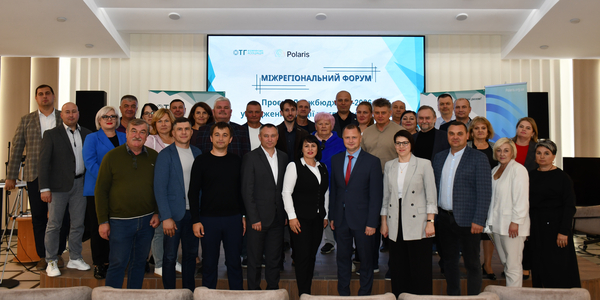
Attached images:
Область:
Кіровоградська областьГромади:
Новоукраїнська територіальна громадаSource:
Всеукраїнська асоціація ОТГ
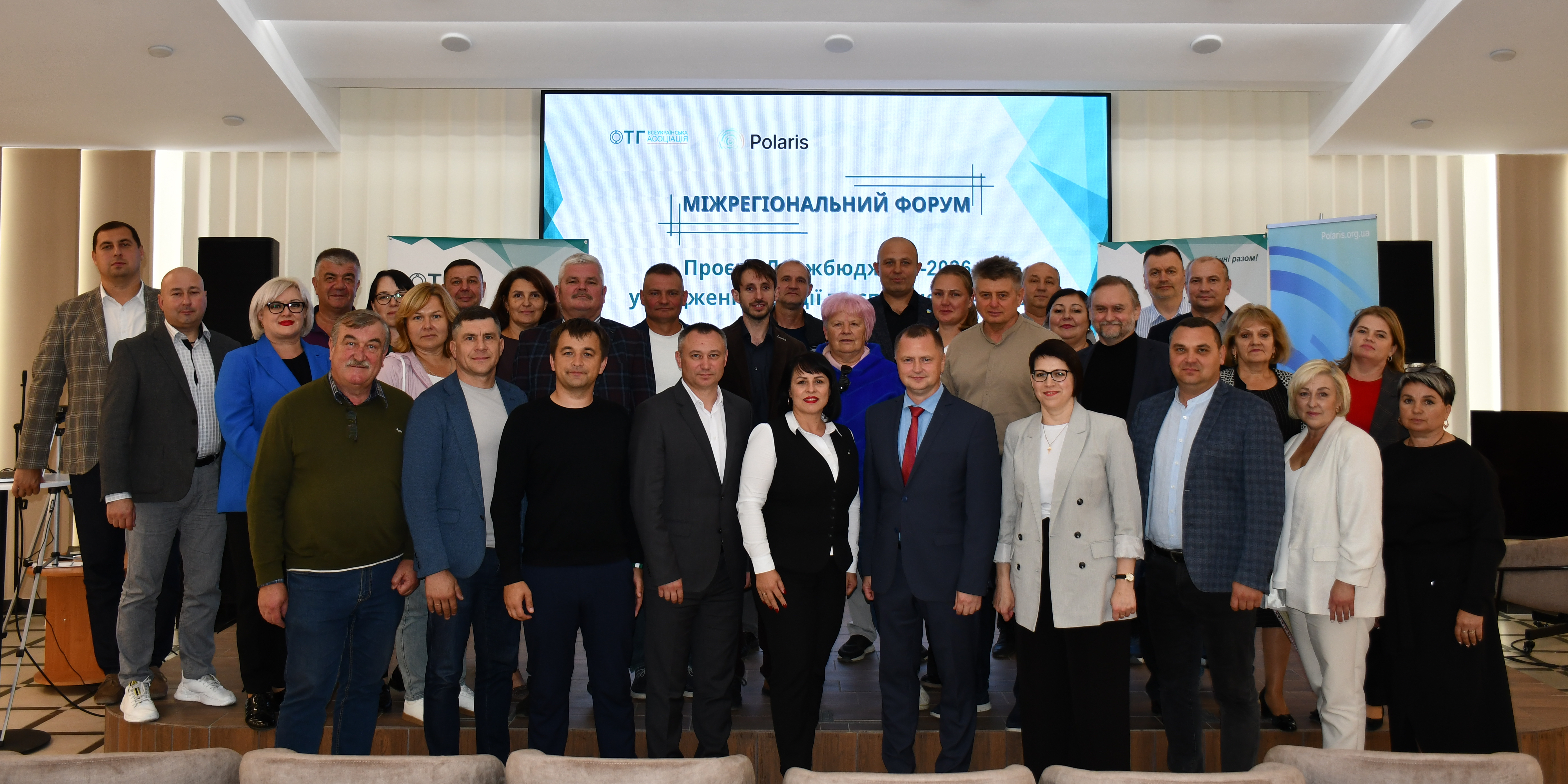
27 February 2026
4 березня – онлайн-лекція «Емоційний інтелект: як управляти емоціями?»
4 березня – онлайн-лекція «Емоційний інтелект:...
4 березня 2026 року о 14:30 відбудеться безоплатна онлайн-лекція «Емоційний інтелект: як управляти емоціями?» для...
27 February 2026
Language of Development Part 3: Institutions Behind EU Cohesion policy
Language of Development Part 3: Institutions...
“Language of development” is a shared voice of many — from key EU institutions to the governments of Member States,...
27 February 2026
Адміністрування податків громадами: Мінрозвитку запускає експеримент
Адміністрування податків громадами: Мінрозвитку...
Міністерство розвитку громад та територій ініціювало експериментальний проєкт, який дозволить територіальним громадам...
27 February 2026
Мінрозвитку підготував проєкт Постанови щодо...
Міністерство розвитку громад та територій України напрацювало проєкт Постанови Кабінету Міністрів «Про пріоритети...